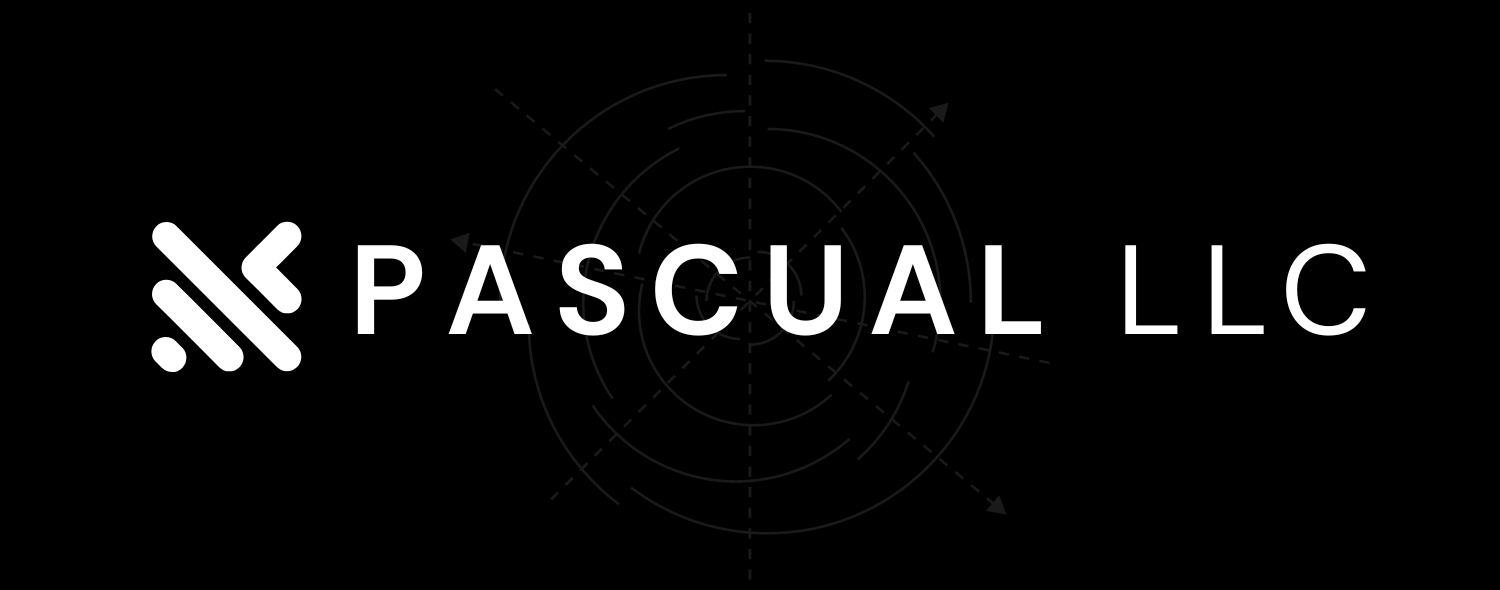What is Black Hat Link Building?
Link building is an essential component of SEO strategy—but not all link building strategies are created equal. While some practices are safe, ethical, and beneficial for search engine optimization (SEO), others can be risky and even downright illegal. Enter black hat link building: a shady form of SEO that attempts to manipulate search engine rankings through unapproved link building techniques.
While black hat link building may be tempting due to its short-term benefits, always remember that the gains are not worth the risks. In this article, we will discuss the basics of black hat link building, the risks and penalties that can come with it, as well as ethical alternatives for building quality links. So without further ado, let’s dive into the world of black hat link building.
Black hat link building is a search engine optimization (SEO) technique designed to artificially increase the number of inbound links to a website. This practice involves unethical tactics such as buying links, excessive link exchanges, and invisible text/links, which can ultimately lead to a penalty from search engines. Black hat link building tactics are unethical and should be avoided at all costs; safe and ethical link acquisition practices should be employed instead or your website may be banned from search engine results.
What is the best way to avoid getting penalized for black hat link building?
The key to avoiding a penalty for black hat link building is to focus on quality over quantity. Quality links from reputable sources will be much more beneficial for your website’s SEO than a large number of low-quality links. To build such links, it’s important to create valuable content that will draw interest from other websites, as well as actively seek out other websites to form relationships with. Additionally, it is essential to stay up to date with the latest Google algorithms and best practices to ensure that your link building practices are compliant. To sum up, quality over quantity is the best way to avoid getting penalized for black hat link building.
| Link Building | Result |
|---|---|
| Quantity | Penalty |
| Quality | Beneficial SEO |
Using black hat link building techniques can have serious implications for any website. Google and other search engines have very strict webmaster guidelines, and any attempts to manipulate search engine rankings by creating artificial backlinks or using other underhanded tactics can result in penalties, including manual or algorithmic penalties, which can significantly reduce your website’s organic search engine rankings and website traffic. Additionally, using these techniques can damage your reputation and trust from customers and other websites, potentially leading to decreased revenue due to decreased visibility. Furthermore, search engines may blacklist your website if you attempt to partake in black hat link building techniques, and there is also an increased risk of being hacked and malicious attacks if you use these techniques. It is important to consider all these potential risks before engaging in any black hat link building activities.
What are the risks associated with black hat link building
The risks associated with black hat link building are high and can be disastrous for a website’s reputation and search engine rankings. Search engines may penalize websites by lowering their rankings or even removing them from the SERPs, leading to a loss of traffic and potential customers. Additionally, unethical link building techniques can lead to a loss of reputation, legal issues, and the creation of spam links. It is important to be aware of these risks and take steps to ensure that link building practices are ethical and in compliance with search engine guidelines. Taking the time to research and understand search engine guidelines, as well as understanding the risks associated with link building, can help protect a website’s reputation and rankings.
Using black hat link building techniques can have serious consequences for websites. Search engines such as Google and Bing will penalize or even ban websites that are found to be using these techniques. Sites that use black hat techniques may also be removed from search engine indexes, and may be blacklisted by other websites. This can lead to a decrease in website traffic, rankings and visibility, potentially causing significant damage to the website owner’s reputation and bottom line. To prevent these consequences, website owners should focus on using legitimate, white-hat link building techniques, such as content marketing, social media outreach and link building through partnerships. Additionally, website owners should keep an eye out for any suspicious links or link building activities that could be seen as black hat. By keeping these practices in mind, website owners can protect their sites from the consequences of using black hat link building techniques.
What are the risks associated with black hat link building?
Practicing black hat link building can be risky and can lead to serious consequences, including search engine penalties, legal repercussions, damage to reputation, loss of organic traffic and credibility. To avoid these risks, it is important to use safe, ethical link building practices that comply with search engine guidelines. This includes researching the websites you link to, avoiding link farms, and engaging in link exchanges with reputable websites that are relevant to your niche. Additionally, it is important to monitor your website regularly to ensure that you are not associated with low-quality websites or malicious content. Taking these precautions can help you maximize the effectiveness of your link building efforts while minimizing the risks associated with black hat link building.
Black hat link building techniques may seem like a quick and easy way to increase a website’s search engine rankings, but in reality they carry a number of risks that can have serious ramifications. Poor search engine rankings, loss of reputation, legal action, and wasted time and money are all potential risks of using black hat link building techniques. Businesses should be aware of the risks and exercise caution when considering these techniques. Search engine optimization (SEO) is a long-term strategy and requires patience and dedication, but it is the best way to ensure that a website is visible and successful in the long run.
What are the risks associated with black hat link building?
When it comes to link building, it is essential to understand the risks of implementing black hat tactics. Using tactics that violate terms of service or otherwise manipulate search engine algorithms can lead to serious consequences. Search engine penalties, loss of reputation, security risks, spam, and linking to competitors are all risks associated with black hat link building that can harm a website’s visibility and traffic. It is important to take the time to evaluate a link building strategy prior to implementation to ensure that your website does not fall victim to any of the consequences listed above. Making sure to use only ethical link building techniques such as content creation, influencer outreach and other methods that comply with search engine guidelines is the best way to ensure a successful SEO strategy.
Overall, using black hat link building techniques can have significant negative consequences, including search engine penalties, link spam, and damage to reputation. As a result, it is important to use only ethical link building techniques, such as white hat SEO optimizations or content outreach. Using these methods will ensure that you are optimizing your website while avoiding any potential negative penalties.
What are the consequences of using black hat link building techniques
The consequences of using black hat link building techniques can be serious, with potential impacts both to website credibility and rankings. When search engines detect these unethical tactics, severe measures can be taken including a website being penalized or even removed from search engines. Using these unethical tactics can also damage a website’s reputation, as both visitors and search engines tend to trust websites that use the correct techniques and abide by the specified rules.
In addition to the negative consequences, black hat techniques are often ineffective in the long run as search engines are constantly refining and updating their detection algorithms in order to identify and eradicate these tactics. With each update, sites using these techniques are at risk of being discovered and penalized. To avoid any negative ramifications, it is important to use only quality legal tactics that align with search engine guidelines.
In order to achieve successful link building, SEO professionals should focus on link building techniques that comply with search engine guidelines such as quality outreach, guest blogging, and directory listings. Using these techniques is far more beneficial in the long run for a website’s reputation, credibility and rankings as well as being more in line with the set search engine rules that are regularly updated.
Table 1: Link Building Techniques
Technique | Benefit
————————————–
Quality Outreach | Generate Trustworthy Links
Guest Blogging | Establish Authority & Popularity
Directory Listings | Gain More Visibility
In conclusion, it is critical to avoid any black hat link building techniques that do not abide by search engine guidelines. When done correctly, link building can benefit a website in a variety of ways including increased search engine visibility and trustworthiness. By adhering to legitimate tactics, websites have the potential to be rewarded by search engines, making it worth the extra effort in the long run.
Using black hat link building techniques can be tempting for those looking for a quick way to increase traffic or boost rankings, but it’s important to remember the potential dangers of using these techniques. Investing in quality SEO practices, such as content optimization and other white hat link building techniques, will provide long lasting benefits and help avoid penalties from search engines.
What are the risks associated with black hat link building?
Engaging in black hat link building carries with it a variety of risks that could have a drastic effect on the website and its reputation. Search engine penalties, such as decreased rankings, can occur for websites engaging in link purchasing or participating in link farms. This would then lead to decreased traffic and revenue for the website. Furthermore, a website’s reputation could potentially suffer as a result from being associated with black hat link building. Additionally, legal issues, such as copyright infringement and trademark violations, can potentially arise from engaging in black hat link building. Lastly, security risks may arise from malicious websites that could be linked to from the website engaging in black hat link building.
Given these risks, it is best for websites and businesses to engage in ethical link building techniques to avoid potential repercussions and to ensure the brand image and reputation remains intact.
Link farms, private blog networks (PBNs), spam comments, paid links, and link baiting are all methods of generating backlinks for SEO purposes. Though these techniques can help boost rankings, they are often frowned upon by search engines and can even lead to penalties if not done correctly. Link farms, for example, provide low-quality links that are often generated by automated software and do not provide any value to users. PBNs are networks of websites created to manipulate search engine rankings and should be avoided as they can lead to penalties. Spam comments, meanwhile, involve posting comments with irrelevant or promotional content and intended to generate backlinks. Paid links, while not always penalized, are often low-quality links, and should be avoided. Link baiting involves creating content that is interesting or controversial, with the intention of attracting links. While it is a form of content marketing, it can attract spammy or low-quality links and should be monitored carefully. In conclusion, many of these techniques should be used with caution and monitored carefully to ensure that penalizing action by search engines is avoided.
What are the potential consequences of using black hat link building tactics
The use of black hat link-building tactics can have a range of damaging consequences, first and foremost being the penalties imposed by search engines. Such penalties could lead to a website being completely removed from an index, a noticeable reduction in rankings and visibility, and manual penalties. In addition to this, businesses utilizing such tactics would risk losing the trust of customers and other businesses, resulting in a loss of reputation. This leads to a reduced quantity of website traffic and leads, as users may fail to find the website in a given search engine query. Additionally, legal action can also be taken against the infringer, resulting in search engine fines or action from other websites. Finally, the website performance may suffer in terms of page loading times and slow response times due to heavy penalty overheads.
Black hat link building has the potential to severely damage a website’s reputation and presence on the web, as well as incur potential fines and penalties. More specifically, some of the risks associated with black hat link building include search engine penalties, loss of reputation, potential legal issues and loss of trust.
Search engine penalties are one of the biggest risks associated with black hat link building. These types of tactics work in the short term, but Google and other search engines are watching out and they’re often quick to punish. Receiving a penalty from Google can drastically reduce the website’s visibility on search engine results and hinder its success.
Similarly, websites that practice black hat link building can also damage their reputation with other websites and customers. Websites that continuously use low-quality link building tactics may be seen as untrustworthy, and therefore be hurt in terms of conversations and customer reviews.
Moreover, using black hat link building tactics can sometimes result in legal actions. If a website is caught using these practices, it could be subject to various forms of litigation, including copyright infringement and defamation.
Finally, websites that use tactics like link farms, link buying or link exchanges may lose the trust of customers, other websites and search engines. This could have a long-lasting negative impact on the website’s success.
In conclusion, while short-term gains may be appealing, black hat link building can be detrimental to the long-term success of any website. It is important to be aware of the potential risks and the potential penalties associated with black hat link building, and to make sure that any link building strategy employed is appropriate and ethical.
What are the consequences of using black hat link building tactics?
Using black hat link building tactics can have severe consequences for websites including penalties from search engines like Google, removal from their index, and a loss of visitor trust. Lower rankings and less organic traffic can result from the use of these tactics and could potentially put a website’s business in jeopardy, as it may become virtually impossible to find in search results. Furthermore, visitors may become wary of the website if they suspect it has employed such tactics and may choose to look elsewhere for the goods and services they need. To ensure the website remains successful, and that visitors remain loyal, it’s best for businesses to stick to white hat link building strategies, as these are search engine friendly and will help to build trust with potential customers.
To combat the use of black hat link building tactics, many search engines now use algorithms to detect them, and those found using them may be penalized severely. For example, Google’s Penguin Update which was released in April of 2012 was created to target sites using black hat SEO tactics such as link spamming, keyword stuffing, and using link schemes. Those found using these tactics were penalized with lower rankings, fewer organic site visits, or, in some cases, were completely removed from Google’s search index.
To have a successful website, it’s important for businesses to use link building tactics that comply with ethical standards, as the consequences of using black hat link building tactics can be severe. With the proper use of white hat link building tactics, businesses will be able to rank website more easily and demonstrate their commitment to integrity to visitors.
SEO stands for Search Engine Optimization and is an important factor for businesses to consider when maintaining their online presence. Monitoring the link profile of a website is one of the key components to successful SEO. Link profiles are used by search engines to determine the relevancy of websites and can, therefore, play a large part in SEO results. It’s important to monitor both the link profile of your own website and that of your competitors.
Tools such as Google Search Console, Moz, and Ahrefs are essential for any SEO professional to have as a part of their arsenal. All three of these tools allow you to monitor your link profile, which can alert you to any suspicious or unnatural links. Furthermore, you can use them to compare your own link profile to the link profiles of your competitors. This can help to identify any suspicious link building practices that they may be engaging in.
When examining the link profile of a website, it is important to check the anchor text of incoming links as well as the sources of those links. Anchor text should appear to be natural and not overly spammy. In addition, it’s important to ensure that most links come from reliable and high-quality sources. If any suspicious links are noticed, it is recommended that you use Google’s link disavowal tool to remove them from your link profile.
In conclusion, monitoring the link profile of a website is essential for any SEO professional to have as a part of their arsenal. Tools such as Google Search Console, Moz, and Ahrefs are useful for identifying suspicious and unnatural links, comparing your link profile to that of your competitors, and for checking the sources and anchor text of incoming links. If anything suspicious is noticed, it is important to use the link disavowal tools to quickly remove any malevolent links from your link profile.
Wrap Up
Black hat link building is a type of SEO technique that focuses on quickly getting high ranking results in search engine rankings by utilizing unethical and illegitimate methods. These methods typically violate search engine rules and regulations and can lead to being penalized by search engines if discovered. Examples of black hat link building can include link farming, link stuffing, hidden links, SEO Spam, and using automated link software.
Q&A About Black Hat Link Building
Q: What is black hat link building?
A: Black hat link building is a form of unethical internet marketing in which violated search engine guidelines to increase website rankings, often by buying or selling links, or by automated link building software.
Q: What are the risks associated with black hat link building?
A: Black hat link building can have serious repercussions, including being penalized, blacklisted or even removed from search engine indexes. It can also harm your brand reputation and may be against the terms of service of the websites you are linking to.
Q: Are there any alternatives to black hat link building?
A: Yes, there are. White hat link building strategies such as guest blogging, comment marketing, broken link building and creating viral content are all non-manipulative tactics to help improve your website rankings.
Conclusion:
Black hat link building is a dangerous and unethical strategy for increasing website rankings and should be avoided. link building can put your website at risk of steep penalties, and can harm your brand reputation in the long run. Instead, focus on white hat link building strategies to help boost your website rankings in a more ethical manner.

